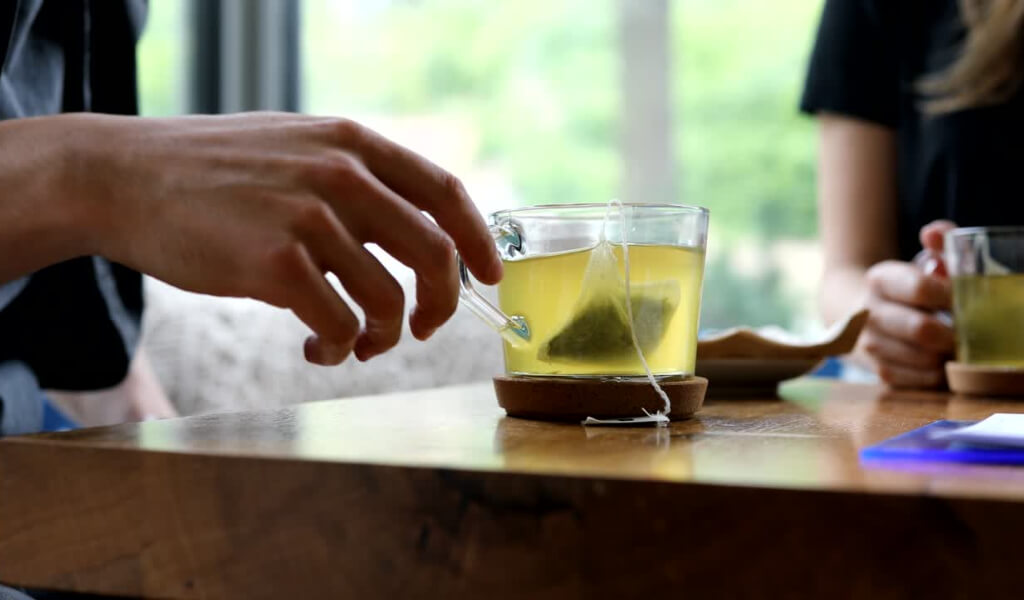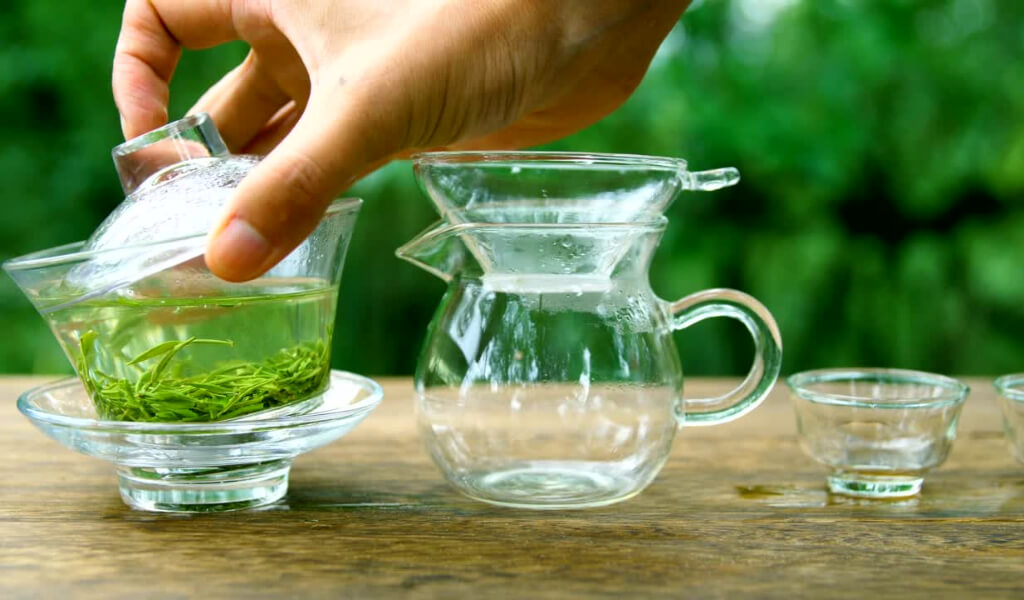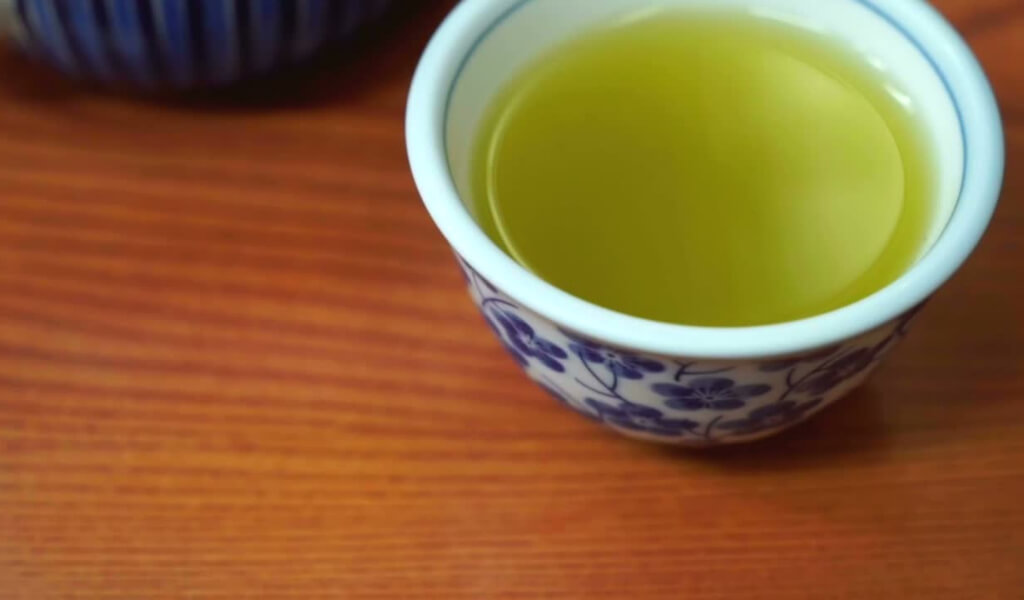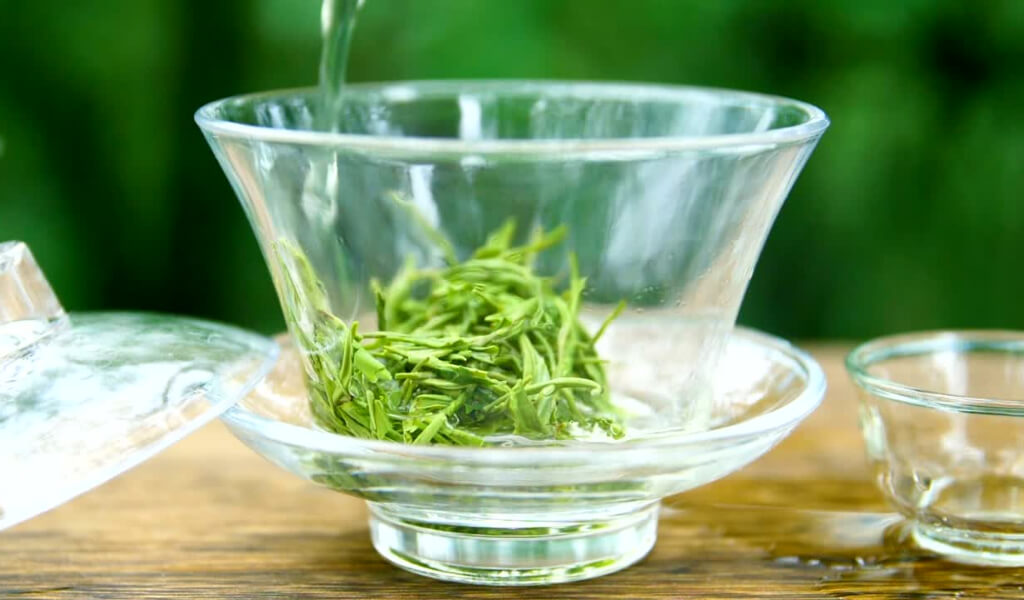Drinking green tea has numerous health benefits, but consuming it at the wrong times can lead to surprising drawbacks.
Timing, as I have discovered, significantly influences the benefits and potential harm green tea can have on your body.
Together, we’ll unravel when the worst time to drink Green tea is, ensuring you can enjoy this healthful drink without any adverse effects.
The Worst Time to Drink Green Tea
| Situation | Recommendation |
| Drinking Green Tea on Empty Stomach |
Not recommended; can cause acidity and gastric troubles. Have a small snack before consuming.
|
| Green Tea Before Bed |
Best to avoid, especially within two hours of bedtime, as it may disrupt sleep due to caffeine and increase nighttime bathroom visits. Drink during the day or early evening for better sleep quality.
|
| Green Tea and Medication |
Avoid taking medication with green tea; maintain a half-hour gap before and after medication consumption to prevent undesirable interactions.
|
| With or Just After Meals |
Allow at least an hour’s gap between your meal and green tea to avoid interfering with nutrient absorption from your food.
|
| Drinking Green Tea for Stomach Upset |
Be cautious; green tea can help with digestion, but excessive consumption can worsen stomach upset, and over three cups a day can lead to dehydration.
|
Drinking Green Tea on an Empty Stomach
Starting your day with Green tea on an empty stomach might not be the best idea. Sure, the initial jolt of caffeine can kick-start your day, but can also disrupt your stomach balance. Green tea is a powerhouse of antioxidants, but on an empty stomach, it can cause acidity and lead to gastric troubles.
I suggest having a small snack before you sip your morning tea. It’s a small adjustment to your routine that can make a big difference in how your body responds to the brew.
Side effects of green tea at night
Individuals who have a strong sensitivity to caffeine may suffer from sleeplessness, uneasiness, irritability, queasiness, or gastrointestinal discomfort following the consumption of green tea.
Furthermore, drinking any beverage before bed can increase your need to use the bathroom at night. Middle-of-the-night trips to the toilet can interrupt your sleep, leaving you feeling tired the next day. This effect is particularly pronounced if you drink fluids less than two hours before bedtime.
No conclusive evidence suggests that drinking green tea on empty stomach at night is more beneficial for sleep than having it throughout the day. But, you should avoid drinking green tea on an empty stomach as it can lead to stomach upset.
Green Tea Before Bed: Good or Bad?
The question of whether drinking green tea before bed is beneficial or detrimental has long been a subject of debate.
Green tea has various health benefits, including potentially aiding better sleep. On the other hand, the caffeine in green tea could make it more challenging for you to drift off to sleep, especially if you drink it two hours before bedtime.
Additionally, the diuretic nature of green tea might increase your nighttime visits to the bathroom, further reducing the quality of your sleep.
My advice: Enjoy green tea for its health and sleep benefits by drinking it during the day and early evening, avoiding the drawbacks of nighttime consumption while still gaining the advantages.
Green Tea and Medication: A Delicate Balance
Here’s something you have yet to consider – the interaction between green tea and medication. If you’ve formed the habit of washing down your medicines with a cup of green tea, it’s time to reconsider. The interaction between the chemicals in your medication and green tea can lead to undesirable effects, including increased acidity.
Now, how long after drinking green tea can I take medicine? You can take green tea, but keeping a gap of half n hour pre and post a medicine consumption. It can prevent potential reactions, safeguarding your health while enjoying your favorite brew.
With or just after your meals
You might find it comforting to sip green tea with or just after your meals, but this habit could inadvertently reduce nutrient absorption from your food.
While green tea can support digestion, drinking it right before or after meals may hinder nutrient absorption, potentially causing deficiencies. To maximize both green tea’s digestive benefits and meal nutrition, wait at least an hour after eating before enjoying your cup.
Drinking Green Tea when Having Stomach Upset: Yes or No?
Dealing with an upset stomach? You might wonder if green tea can provide some relief. Green tea indeed has a reputation for aiding digestion, but when it comes to stomach upset, it’s essential to consider the situation carefully.
Green tea contains tannins which, in larger amounts, can cause nausea or worsen an upset stomach. Consuming more than three cups of green tea in a day can lead to dehydration, which isn’t helpful when you’re already not feeling your best.
Read More:
- How much Caffeine is in Green Tea?
- Top 30+ recipes with green tea 2023
- When is the best time to drink green tea?
- 16 Benefits of drinking Green Tea: A Comprehensive Analysis
- How to make Green Tea at Home: Simple guide for Newbies
- Discover the Different Types of Green Tea: A Comprehensive Guide
- What is the best Green Tea for Health Benefits 2023?
Who Should Not Drink Green Tea
While green tea brings many benefits, it’s crucial to note that only some should consume it cautiously. Certain health conditions and medication interactions could make green tea less beneficial or harmful.
People who suffering from Anemia
Green tea can interfere with the body’s iron absorption, worsening the condition for people already struggling with anemia. If you suffer from this condition, consult your doctor about your green tea intake.
Individuals with anxiety disorders
The caffeine in green tea can heighten the symptoms of anxiety disorders. If you’re dealing with such disorders, monitoring your green tea consumption or discussing it with a healthcare professional is important.
Bleeding Disorders
Green tea could be risky for those with bleeding disorders because of its impact on blood clotting. If you belong to this group, it’s crucial to consult your doctor before drinking green tea.
Heart Conditions
The stimulant effects of green tea’s caffeine can potentially cause problems for those with certain heart conditions. Discuss your green tea intake with your healthcare provider if you have heart-related health concerns.
Diabetic Individuals
Green tea might affect blood sugar control, so those with diabetes should consider their consumption carefully and discuss it with their healthcare provider.
Specific Medications
So, the question now is, can I take medicine after tea? Individuals taking certain medications, including stimulant drugs, anticoagulant drugs like warfarin, and chemotherapy drugs, should exercise caution, as green tea can interact with these medications, potentially altering their effectiveness. Always consult your doctor or pharmacist regarding potential interactions with green tea if you’re on any medication.
Concluding Thoughts: The Pros and Cons of Green Tea
Understanding the worst time to drink green tea can help you fully enjoy the benefits of this healthful brew while avoiding potential pitfalls.
Ultimately, the key lies in moderation and knowing your body well. This ensures you can enjoy your green tea to the fullest while maintaining your health and well-being.
Thanks from Spiritea Drinks
I’m Shanna, creator of Spiritea Drinks. I’m all about teaching people to grow their own food, tea, cook what they harvest, and eat with the seasons.








